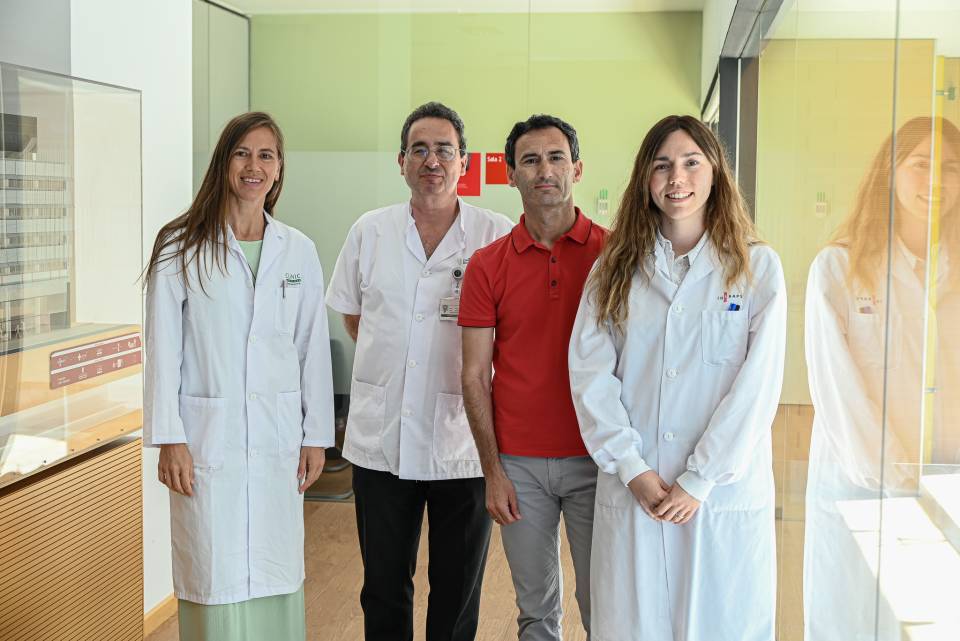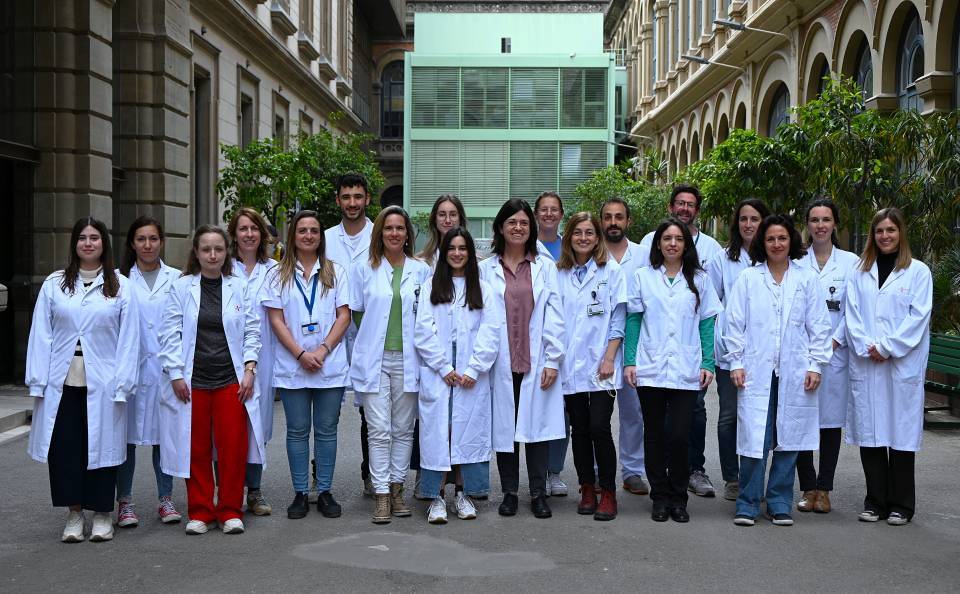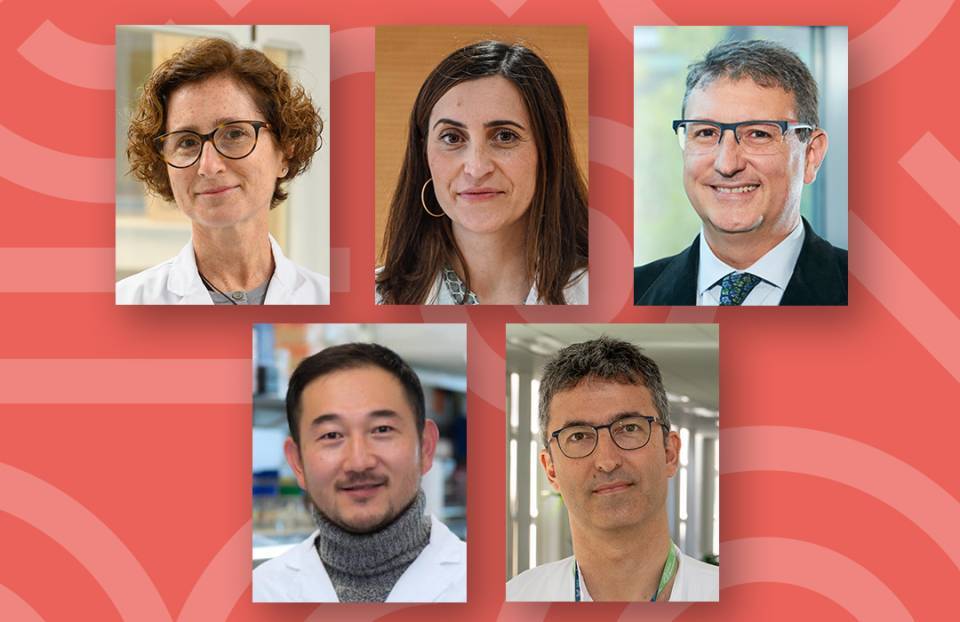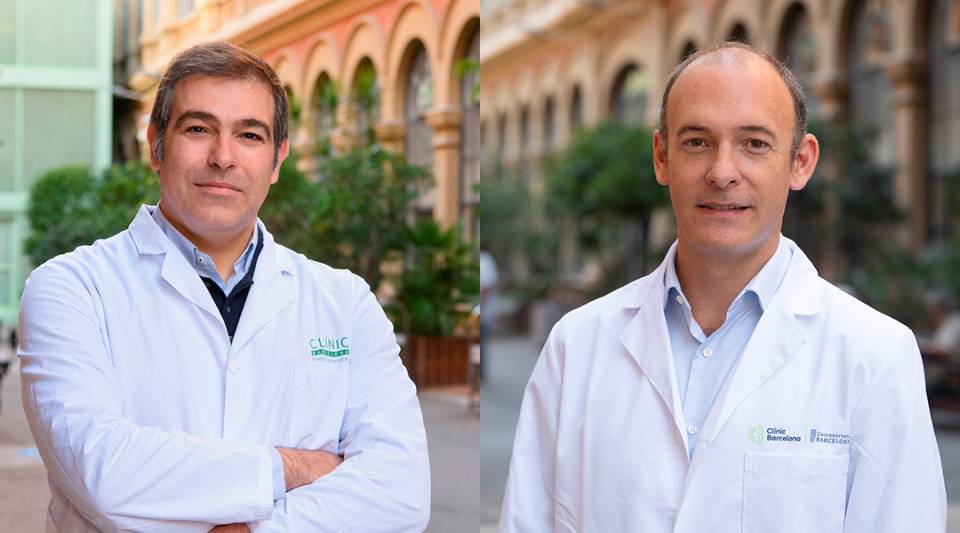Published in Leukemia, this is the first study to present preclinical data with CAR-T cells targeting the CD84 protein. The findings validate GYA01 as a highly promising therapy and highlight CD84 as a broad hematological target, opening new opportunities to expand CAR-T therapies beyond malignant B-cell neoplasms.
Clinically challenging leukemias
Acute myeloid leukemia (AML) accounts for approximately 30% of all leukemias diagnosed in adults, with around 145,000 new cases every year worldwide; although many patients achieve initial remission with chemotherapy, nearly half relapse after first-line treatment.
Acute T-cell lymphoblastic leukemia (T-ALL) is a very rare subtype, representing about 15% of childhood ALL cases and up to 25% of adult ALL cases. In children, survival rates exceed 90% with chemotherapy, but in adults, long-term survival drops to around 40%. For both these rare and aggressive cancers, patients who relapse or do not respond to initial treatment have very few therapeutic options available.
Preclinical advances in leukemia
The study published in Leukemia included both in vitro and in vivo experiments to assess the safety and efficacy of GYA01. Key findings from the research include:
- A potent, specific cytotoxic effect against AML, T-ALL, and aggressive B-cell lymphoma cell lines as well as against primary leukemic cells from patients.
- Significant efficacy of CAR-T cells in animal models, using both cell lines and patient-derived leukemic cells, achieving disease eradication and extended survival.
- Successful expansion of CAR-T cells using samples from both healthy donors and patients, with a favorable memory phenotype and without requiring additional genetic editing to avoid fratricide.
The study demonstrated that CD84 is consistently overexpressed in acute myeloid leukemia and acute T-cell lymphoblastic leukemia, even in high-risk subtypes. This protein is also highly expressed in other hematological cancers, such as chronic lymphocytic leukemia and aggressive B-cell lymphomas, while its presence in non-hematological healthy tissues is limited.
This expression profile positions CD84 as a high-potential target to broaden the use of CAR-T therapies beyond B-cell neoplasms, where approved treatments already exist.
“The preclinical evidence confirms that GYA01 is a CAR-T therapy with great potential, endorses CD84 as a pan-hematological target, and lays a solid foundation for advancing towards clinical trials in patients with AML and T-ALL. For these indications, the main challenge of CAR-T therapies is the lack of specific tumor targets,” explains Dr. Nela Klein-González, researcher of the Immunogenetics and Immunotherapy in Autoinflammatory and Immune Responses IDIBAPS group, Medical Director of Gyala Therapeutics, and first author of the article.
Dr. Claudio Santos, CEO of Gyala Therapeutics, states that the company's next goal “is to start the clinical trial of GYA01 during the second half of 2025 at Hospital Clínic in Barcelona and Hospital La Fe in Valencia, to make this therapy available as soon as possible to patients facing aggressive leukemias with few alternatives.”
The GYA01 program is based on the experience of Clínic-IDIBAPS, a pioneering institution in CAR-T therapies in Spain and under the leadership of Dr. Manel Juan, Head of the Immunology Department at Hospital Clínic and of the Immunogenetics and Immunotherapy in Autoinflammatory and Immune Responses group at IDIBAPS. Hospital La Fe played an important role by conducting key CD84 expression analyses in AML patients and healthy bone marrow samples.
To launch the clinical trial, Gyala Therapeutics—which was founded as a Clínic-IDIBAPS spin-off in 2020—has secured a €3 million investment round, with participation from Invivo Partners (venture capital firm behind the company), Nara Capital and CDTI Innovación via the Innvierte program.
Reference article
A novel chimeric antigen receptor T-cell therapy targeting CD84 for the treatment of acute myeloid and T-cell lymphoblastic leukemias
Lorena Pérez-Amill, Mercedes Armand-Ugón, Maria Val-Casals, Beatriz Martín-Herreros, José R Álamo, Sergio Peña, Gerard Frigola, Ane Altuna, Claudio Santos, Francesca Guijarro, Alfredo Minguela, Àlex Bataller, Berta Casanovas-Albertí, Mireia Uribe-Herranz, Irene Navarro, Manuel Guerreiro, Diego Sánchez-Martínez, Néstor Tirado, Talía Velasco-Hernandez, Pablo Menéndez, Antonio Martínez, Montse Rovira, Dolors Colomer, E Azucena González-Navarro, Jordi Esteve, Álvaro Urbano-Ispizua, Pau Montesinos, Julio Delgado, Manel Juan, Nela Klein-González. Leukemia, 2025. DOI: 10.1038/s41375-025-02705-4




